Sometimes tempo is everything.
One of the things I became cognizant on gigs when I was calling tunes was that you had to have a variety of tempos or blandness sets in. You learn that you always have to keep mixing it up. We called it “push and pull”.
Another thing you learn as an elementary music teacher observing students is that kids like to go fast. Really fast. It doesn't matter if they're on the driving a bumper car, strumming a guitar, or playing their Nintendo switch, they feel the need for speed.
Our society and culture have sped up thanks to technology and the compression of time. “Wall Street’s” fictional character Gordon Gecko’s “Greed is good” is the cliché “time is money” on steroids.
As musicians, we understand the dirty little secret that the general public doesn’t know: that playing slow is much harder than playing fast. Slow exposes a multitude of weaknesses, misunderstandings, faulty technique, and erroneous assumptions in the music.
But for the time being, let's walk away from the instruments and singing and focus on fast and slow in our professional life in the school system.
As musicians were trained to respond in nanoseconds and it's hard not to make a face or say something snarky or catty to a kid or supervisor when they say or do something that defies the limits negativity and we feel they deserve it.
That's the time when we really need to slow down and take a beat.
One of the greatest gifts we can give a kid is not reacting to their behaviors the way their parents do.
A teacher’s response that comes after a pause always carries more weight.
Have you ever noticed in movies that the crucial line is often delivered after a pause? Silence gives weight to what follows it.
An ingrained physical prompt that we can count on will help us put that little space in the moment.
For me, I would put my hands in my pockets.
The other one I did many times was make the sound “Mmmm, mmm, mmm” as in the old Campbell’s soup commercial where they sang “Mmmm, mmm good”. I could make those three short vocal sounds convey any emotion I needed to impart in my classroom. It is a great example of para-linguistics, where what you say is overshadowed by how you say it.
Many times, the best things we can say are these types of non-verbal utterances that carry the weight of our emotion. I made those sounds on other occasions when I was pleased, surprised, or vexed with what a student or class had done.
Another area where you have to be careful with the quality, quantity, alacrity, and severity of your response is when you sit with your supervisor in a post-observation meeting or a year-end cumulative evaluation meeting.
Instead of thing “fast and slow”, think “impulsive and deliberative”.
Simply know that administrators have to find something wrong or something to improve with your work. Their own supervisors demand it of them. The premise is that no one's perfect and that as observers, our supervisors have to be able to give us positive feedback in order for enrichment and improvement.
So if the high score is going to be five, do not expect all fives. Do not wince when you are presented with that four or a three in the meeting.
Practice beforehand saying phrases like that “sounds about right, thank you” or “I was thinking a similar thing after that class you observed.”
It's important not to be confrontational during these meetings.
Back in the day, year-end summaries for observation write-ups were on paper and slid across the table towards you like a new car contract at a meeting with the expectation that you would sign it on the spot.
I learned to say things like “Well, let me take this home tonight and study it because we might want to add some stuff to it to corroborate what you wrote”.
You can delay signing by saying “I'm really fighting a bad headache right now and I'm having a hard time reading so how about if I read this over tonight”.
If there are things in the document that are blatantly false or didn't happen, start making a list.
You are going to have to schedule another meeting with your supervisor and calmly convey that after further examination of the document, you found a few points that were a little off the mark in your estimation. If it's a mistake like you were singing “Are You Sleeping, Brother John?” and your boss called the tune “Row, Row, Row Your Boat”, bring it to their attention but nonchalantly say that it doesn't matter – they can leave it the way it is, it’s not a big deal to you.
Just that single act of willingness to go along with things will buy you miles of support and appreciation from your supervisor.
Whatever you do, make sure if you disagree with something in the final document, notate in the margin with pen “discussed and I disagree” with your initials after it. Hopefully it will never get to that place.
Within the first week after receiving an observation document, respond with an action plan to bring your threes and fours up to fives. Create an action plan. Detail in it how you are going to invite your supervisor back to your classroom to observe measurable improvement in those areas.
This cannot be a baloney document. It's got to have real teeth and meaning if you expect it to work and bringing up your future evaluations.
Eventually, you'll get to a place where I was with many of my post-observation meetings. My administrator basically said “On a scale of one to five everything I saw was a six, what incredible class. I'm at a loss, I have to give you a four in something. Throw me a bone. What do you think would be something good to give you a four in?”
And then I'd say something innocuous like “develop better sight lines in the classroom to cut down on student distractions” or “re-visit new technology advancements and their implications in the music room”.
All these ideas slowly spring from a place of deliberation and not from an impulsive response with snappy answers or quick quips.
There's a time for fast and there's a time for slow.
Don't give your boss the bum's rush in a post-observation meeting. Offer them the benefit of the doubt even, if you don't have a spare one with you at the time.
Understanding fast and slow will enhance your control over situations with both administrators and students.
Try presenting fast music to pump up a tired or listless class and using slow music to bring down tensions, emotions, heartbeats, and respirations. If you are working with severely disabled kids, try watching their nostrils and monitoring their muscle tone to get a more accurate read on what tempos will benefit them. Linking your music’s tempo to a student’s respiration and gently increasing or decreasing your tempo will affect their breathing tempo.
You can do the same in meetings with your supervisors.
Never lose sight of your training: you're trained to be a musical director, a conductor. Subtly change the tempo in your meeting for mutual benefit between you and your administrator and in the end, you'll both be pleased with the results.
You might even give each other a high five and a standing ovation!
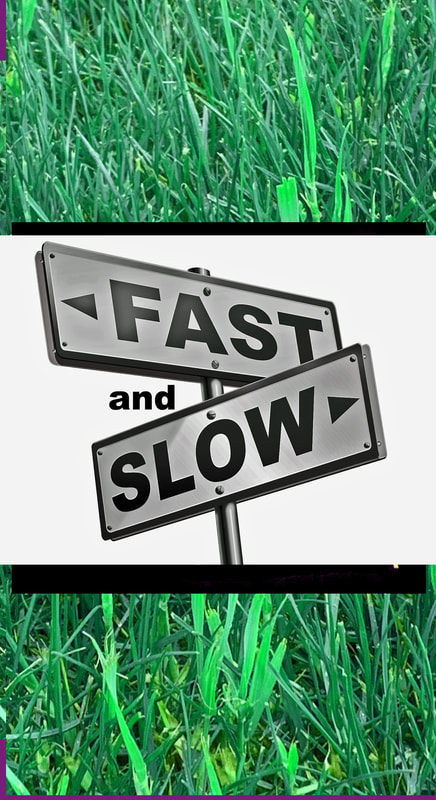
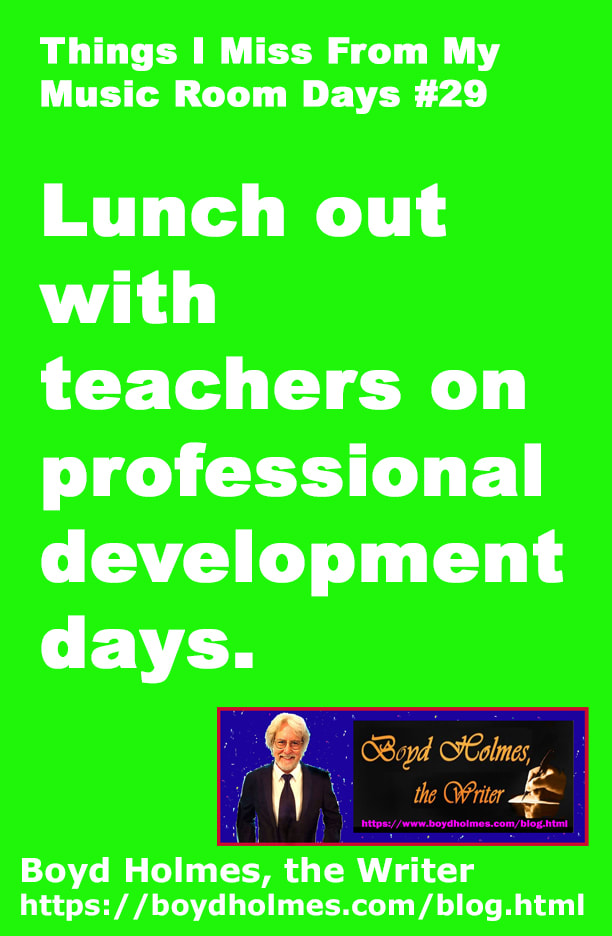
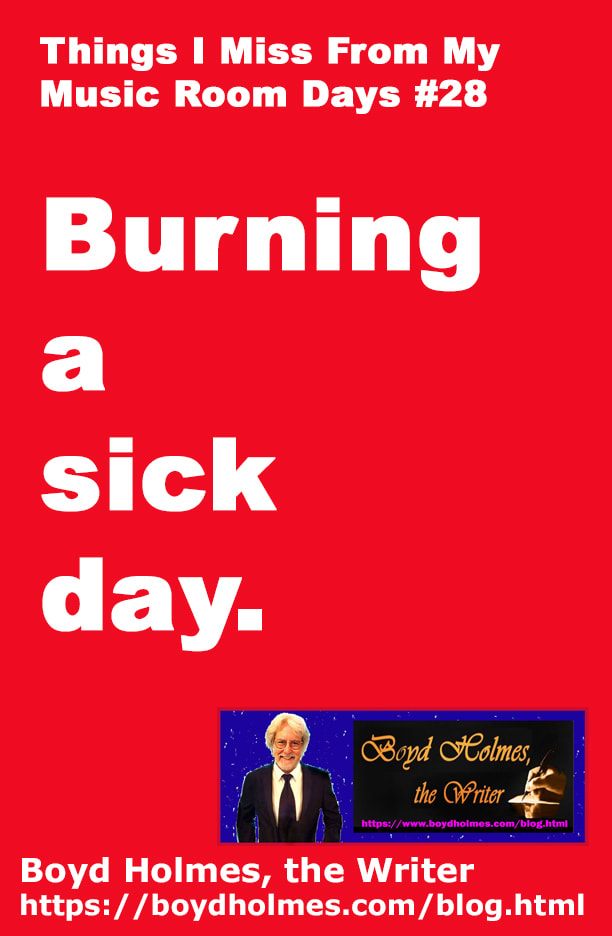
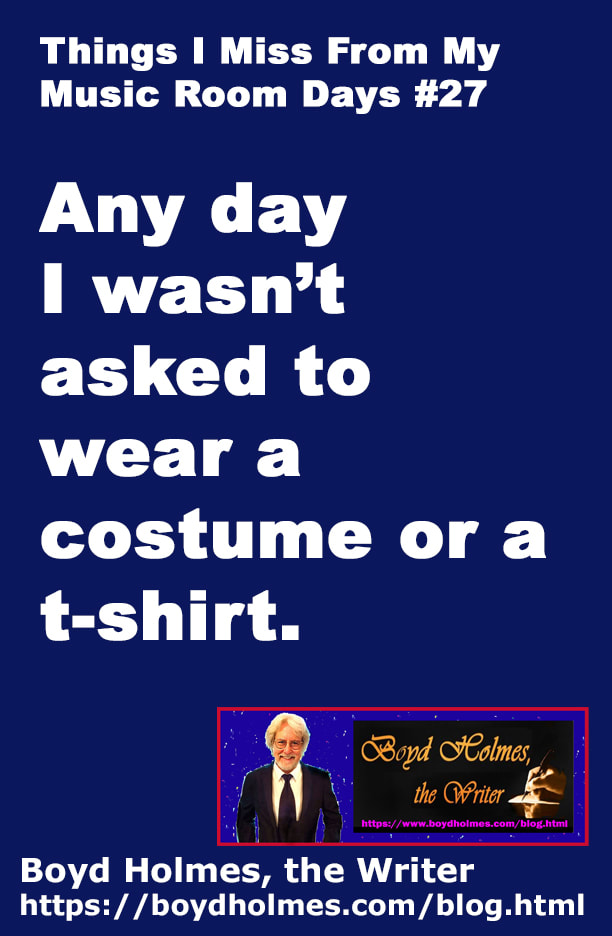

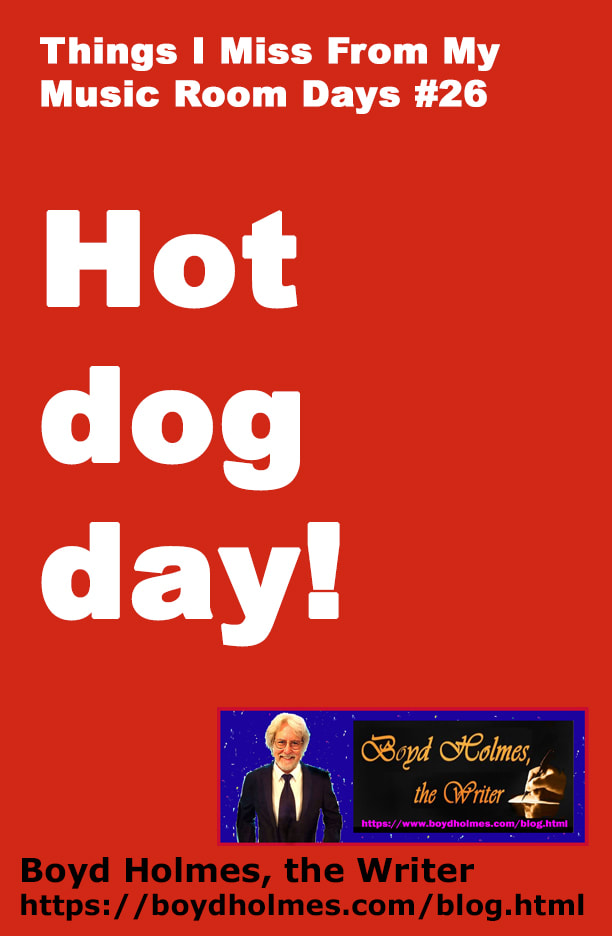
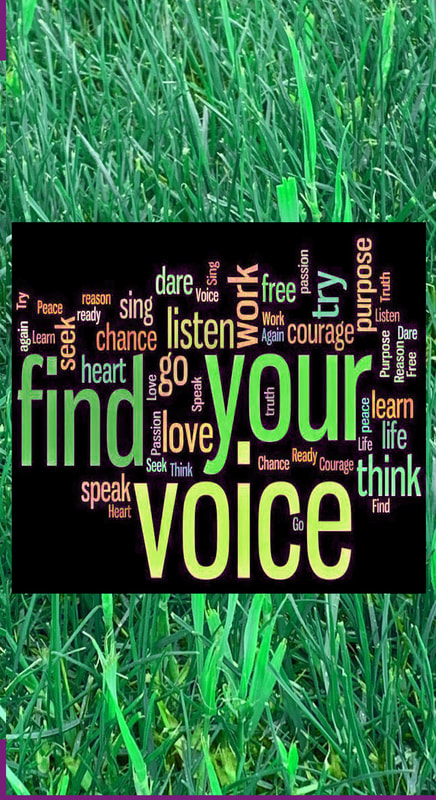
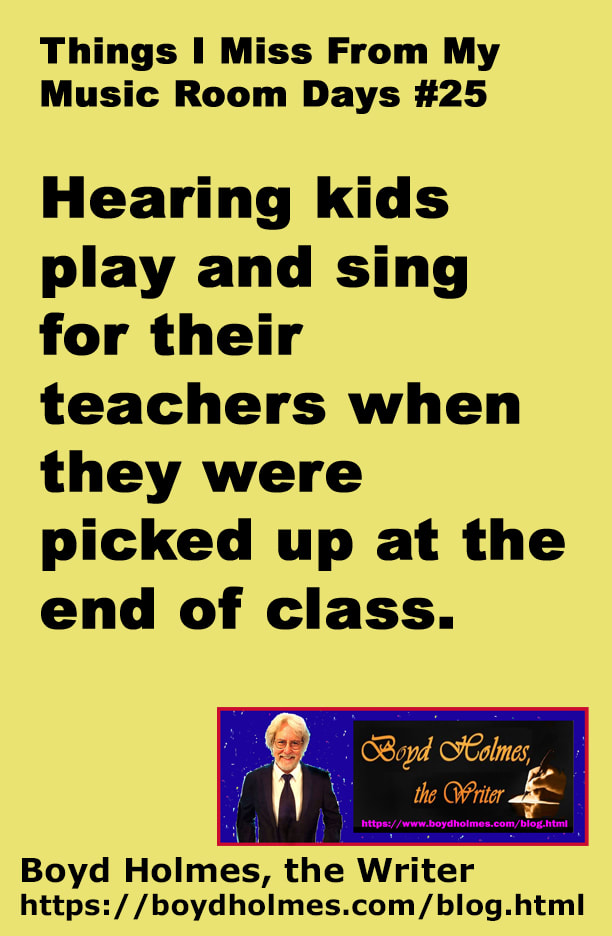
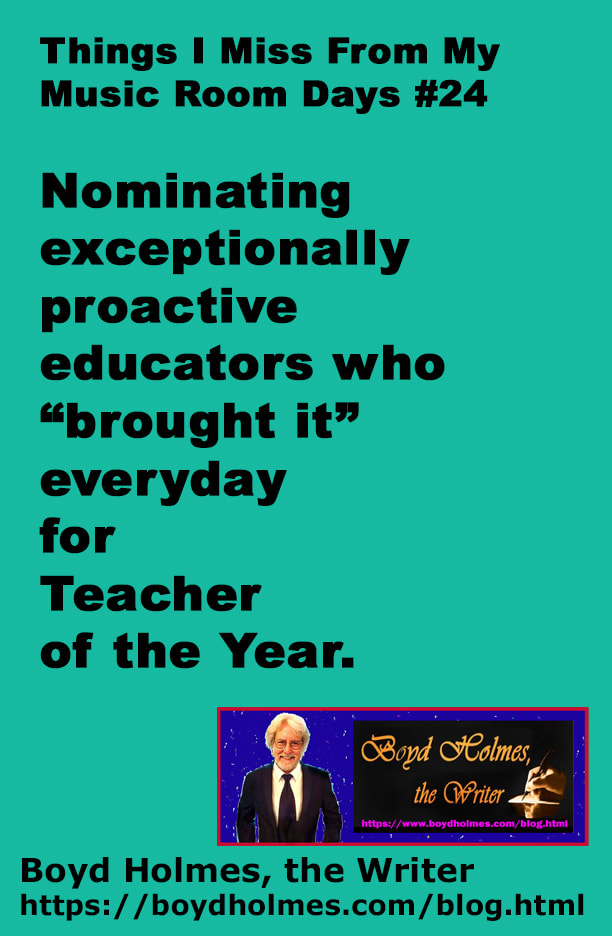
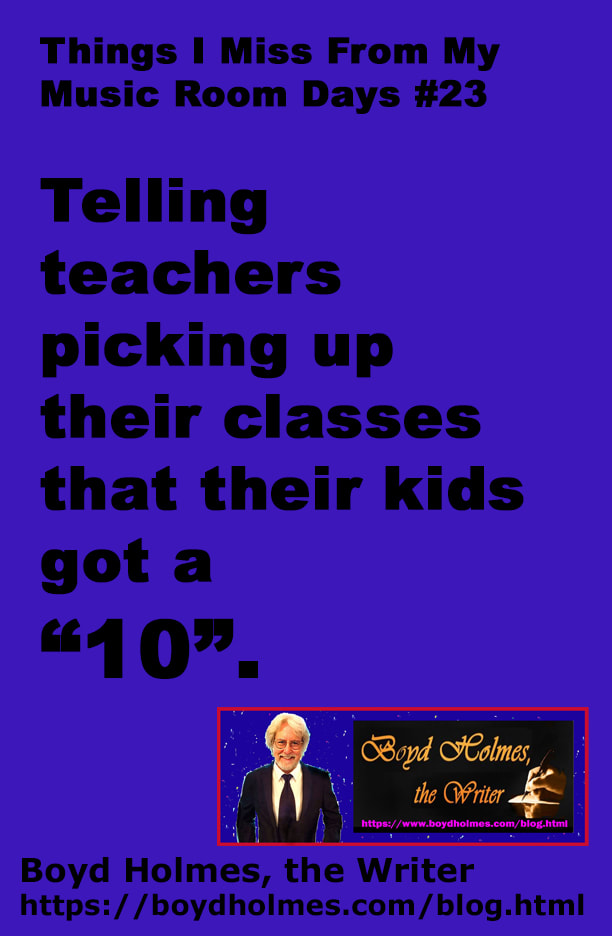
 RSS Feed
RSS Feed